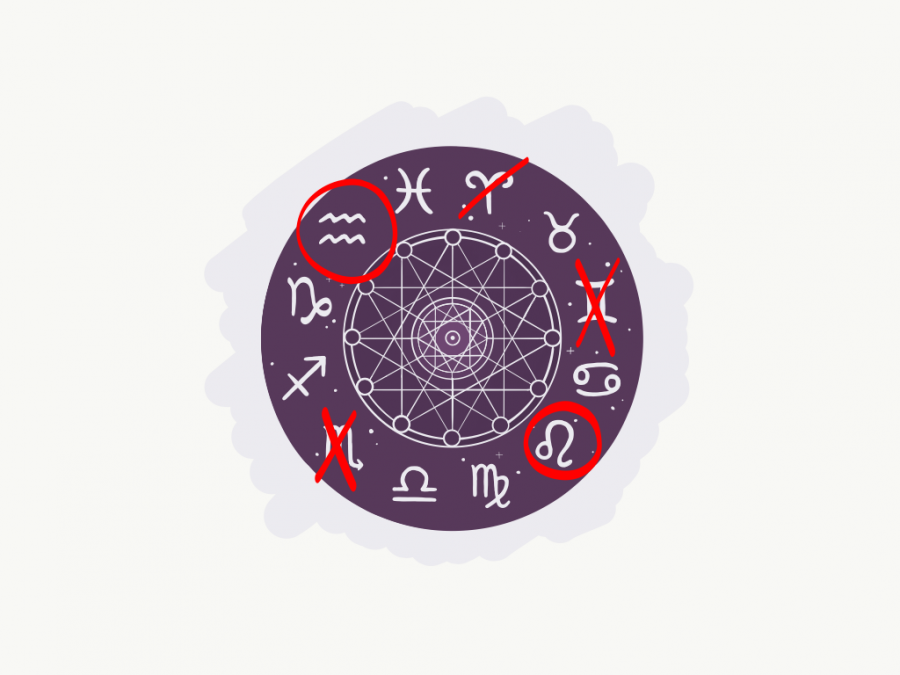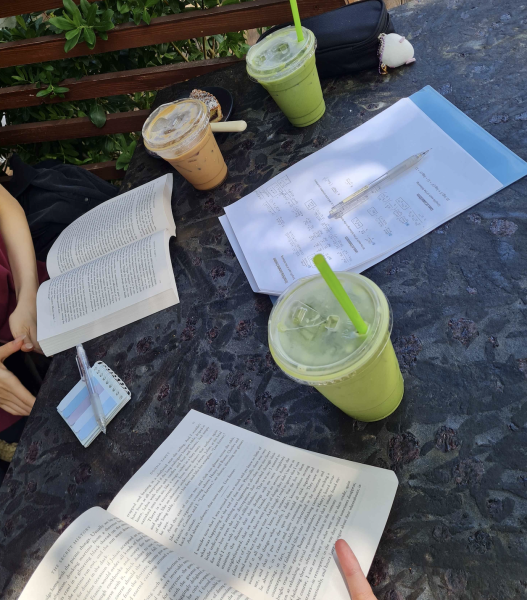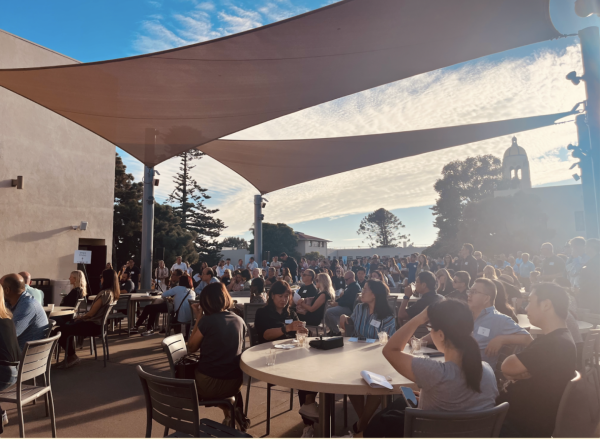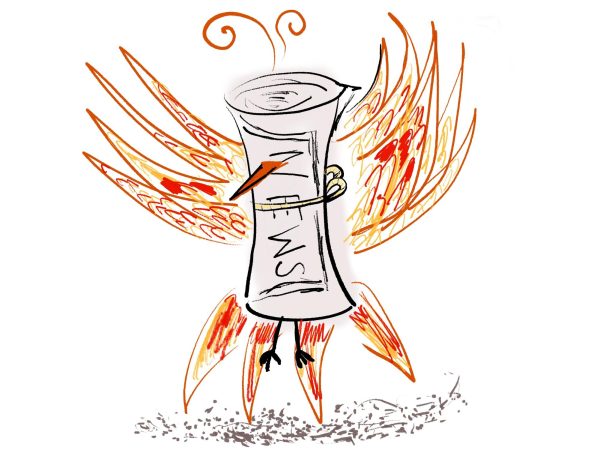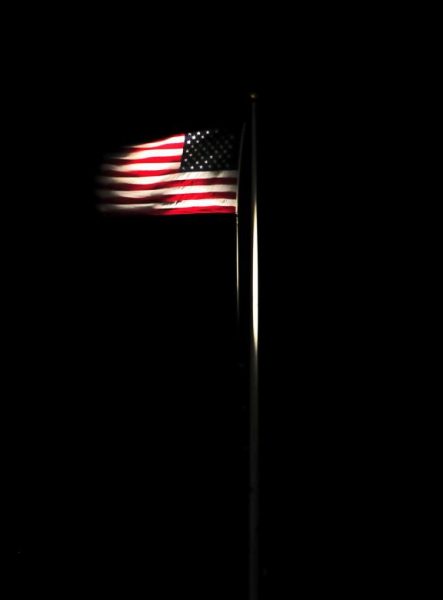Hidden in the Stars
An in-depth look into astrology and its allure amongst young people–as well as its detractors.
Star signs are a core component of astrological readings–each component of a sign builds the core of someone’s personality.
If the sun was shining a little brighter on April 19, 2021, or the spring breeze felt a little crisper, don’t become disconcerted. A monumental earthly shift had been occurring: the sun and adjunct planet of communication, Mercury, had both been leaving the impulsive, fiery Aries sign and entering stubborn, earthy Taurus. According to seasoned astrologists, this means that, because of the placement of Mars, it will be difficult to take decisive action in your life. Ascending Geminis will have a particularly difficult day on top of all of this because of the position of the moon. While some of these predictions may seem feasible to the most vehement followers of astrology, most people would likely write projections off as a part of the increasing hype enveloping horoscopes and astrological culture.
With the rising popularity of astrology apps like Co-Star and The DailyHoroscope, not to mention Snapchat’s addition of users horoscopes in 2020, it’s becoming increasingly difficult to get through the week without at least one conversation that begins with, “What’s your star sign?” Unsurprisingly, as trends grow in prominence, so do their detractors. And it seems that with time, astrology has also grown far more gendered than it appears.
The recent growth in astrological content in the media is undeniable. As well as apps assisting with horoscopes and star charts being pushed to the forefront of social media, pop culture websites like Vice and The Cut have observed a considerable growth in the popularity of their horoscope sites. According to Stella Bugbee, president and editor-in-chief of The Cut, a typical horoscope post on the site got 150 percent more traffic in 2017 than the year before. Curiosity around astrological content also started to peak around then, as Google searches for “birth chart” doubled between November of 2013 and November of 2018 in the United Kingdom, according to research from Vice.
These numbers may not sound significant in the context of the internet, but astrology has also gained wider notoriety as also a “New Age” spiritual belief amongst Americans; in a 2017 Pew Research Center poll, analysts found that almost thirty percent—over a quarter—of Americans believe in astrology. However, this number is not representative of an equitable division by gender; the same report found that the number of women who believed in astrology was noticeably greater than men—by over 17 percent. According to The Atlantic, the reputable astrology app Co-Star is backed by six million dollars, and there is clearly an audience for their product—since its launch in 2017, it has been downloaded six million times. However, eighty percent of its users are female, and their ages err on the younger side; its average user is 24 years old. The actual consumer base or gender breakdown of astrology is not the problem—it’s the rhetoric about women that surrounds it.
The most evidence one could find for the stark gender breakdown of astrology is in the products that are traditionally marketed towards women. Think magazines like Cosmopolitan, or VICE’s channel geared towards women and the LGBTQ community, which according to VICE, gets a “huge amount of traffic from astrological features and horoscopes.” A lot of people believe that the criticism that spawns from astrology—which despite the encouraging statistics above, there is copious amounts of—actually stems from society’s urge to immediately discredit anything young women like as stupid. In a 2021 issue of The Tower, Sariah Hossain emphasizes this claim with the assertion that “Teenage girls have also always been especially privy to society’s scorn—they, as a group, hold so little cultural capital (coolness points, essentially, or taste) in the eyes of society. Whatever they do, some part of it will be made fun of en masse.” In a vacuum, it doesn’t seem like astrology would have any relevance to this cultural phenomenon; it’s hard to say whether the societal outlook on astrology would be different if it was a belief primarily populated by men. However, as a belief, astrology is dominated by women; according to a 2005 Gallup poll, almost 5% more women nationally believe in astrology than their male counterparts, which contextualizes this criticism in an extremely different light. This breakdown is noticeable on a local scale as well; Haha Shi (‘22) noted that, “Although I don’t necessarily believe in astrology, I think that people get annoyed at me or judge me for talking about it regardless, so I have to remind myself to talk less about astrology a lot of the time.” The feeling of being censored that Haha experience campus, in any form big or small, is unacceptable.
Additionally, there has been lots of negative and inherently harmful rhetoric towards primarily female believers in astrology, including a 2011 Discover magazine piece which claimed that “less intelligent [people are] more likely to accept astrology as scientific.” Society has always had a hard time accepting things that young people, women in particular, perceive as completely valid, and it’s hard not to see those ties in the groundwork for the campaign against astrology. It is the motivation behind the anti-astrology expression, not the delivery, that makes its campaign so dangerously border on becoming discriminatory.
Not liking astrology does not make you sexist, nor does questioning the validity of a practice with more spiritual than scientific backing. However, perpetually putting down the “astrology girl” as a silly stereotype does nothing but enforce harmful ideas in the minds of young women that they can’t do what they find fun for fear of retribution. And of course, Mercury is in retrograde, which can’t possibly help.
Maya Buckley is a junior and The Tower's Social Media Manager. When she is not crying about her latest chemistry quiz, she enjoys singing in Bishop’s...


